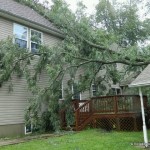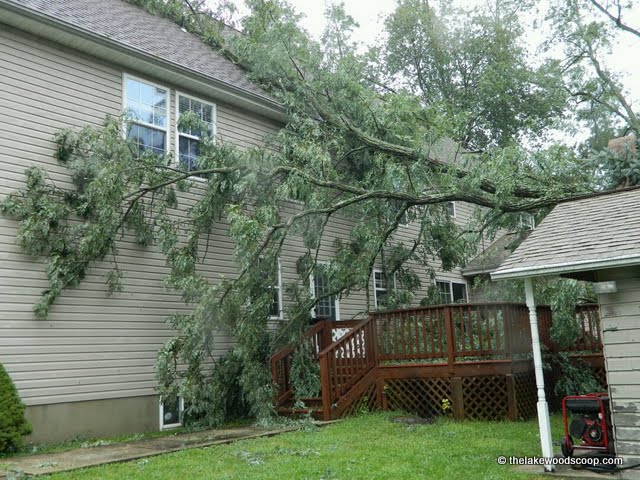 [Reader Submitted] Ever since people realized that Hurricane Irene was a serious threat the phones at our agency have been ringing off the hook with many questions regarding hurricanes, flood insurance and water damage. And understandably so – this was supposed to be a serious event and that’s why we buy insurance – to protect ourselves and our assets from a disaster. Now that the storm has passed our area and the cleanup has started I am taking the opportunity as a local insurance agent to “clean up” some of the insurance confusion blowing around out there.
[Reader Submitted] Ever since people realized that Hurricane Irene was a serious threat the phones at our agency have been ringing off the hook with many questions regarding hurricanes, flood insurance and water damage. And understandably so – this was supposed to be a serious event and that’s why we buy insurance – to protect ourselves and our assets from a disaster. Now that the storm has passed our area and the cleanup has started I am taking the opportunity as a local insurance agent to “clean up” some of the insurance confusion blowing around out there.
Property damage as a result of a hurricane can come in several forms. Wind can blow off a roof; the heavy rains can cause water to back up in a drain and come into a home and a lake can overflow into someone’s house. The interesting thing is that each one of these damages are looked at differently from an insurance perspective. So here are some important things to keep in mind to better understand your insurance policy. Remember this is only a summary of some basic ideas found in a majority of insurance policies. Each policy is different and you must refer to your specific policy for the details of your coverage.
1) Hurricanes: As long as the damage is directly from the hurricane, i.e. the wind blows off a piece of the roof or it knocks down a tree which damages a house there is generally coverage under a Homeowners policy. The exception to this rule is in coastal areas. Since the threat of hurricanes is that much greater sometimes you can have a policy with a “wind exclusion”. However this is something that is generally clear when you buy the policy.
2) Backup of Sewer or Drains: If water comes into your house from a backup of the drains or because the sump pump did not work properly (either because of a malfunction or a power outage) this is very often excluded from the policy. However, many insurance companies offer an option to purchase this extra protection. Nevertheless most companies only offer a small limit such as five or ten thousand dollars.
3) Deductibles: Every policy has a deductible which means that you must pay something out of your pocket before the insurance kicks in. With respect to Hurricanes or windstorm, there may be a separate deductible. The deductible can be a dollar amount or a percentage of the value of your home and is usually larger than the standard deductible.
4) Overflow of a lake or body of water: This is a “Flood” and is not covered under a homeowners policy. Flood insurance is available through the National Flood Insurance Program (NFIP) and can be purchased through a local insurance agent. However, keep in mind that there is limited coverage for basements. It will cover structural items as well as heating and cooling systems. Click here for more details on what’s covered under Flood insurance.
In closing, there are key differences between one policy and the next. The time to discuss this with your agent is not after the storm hits (or the day before) but rather when the skys are calmer and you have the time to understand what the risks are and the available options that you have. Insurance is something nobody enjoys discussing but if you take the time to understand what the risks are beforehand and what protection your policy affords it should save you from being swept away with the seas of grief at the time of a claim.
Avi Wilhelm is Vice President of The Wilhelm Agency, Inc. He can be reached at [email protected].


ty
Very comprehensive information. Thank you.
That means that all the homes near the lake that were flooded will not have insurance? Should we start a fund for them?
To #3
Generally a home in such close proximity to a body of water has flood insurance, in which case they would be covered. If they have a mortgage, the bank would not issue the loan without the flood insurance.
Help! I live In west gate and I got flooded. Now I have to leave kollel….
there are more hurricanes to come
I’ assuming if you live near the lake, you MAKE SURE to have flood insurance!!
there are some locations that insurance companies will not issue flood insurance for .The sad fact is that many times homes are built in locations that should never be allowed ,but we know how that works towns often do not care and allow building anywhere as it brings in tax revenue .